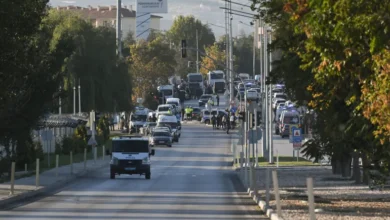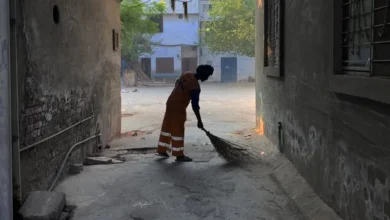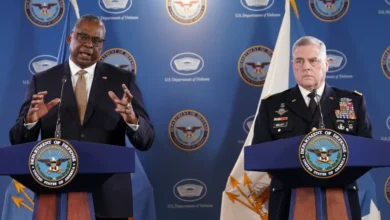Israel-Gaza war spillover risk: Mapping recent strikes in Middle East

As Israel’s war on Gaza pushes on in its fourth month, fears of regional escalation are growing, with multiple nations and armed groups targeting each other’s territories and common waters, and the United States boosting its military assets in the region.
Last week, Iran launched attacks in Syria and Iraq after members of its elite forces were killed in the Syrian capital Damascus allegedly in Israeli attacks, while the US along with the United Kingdom have carried out several attacks against the Houthis in Yemen.
Tens of thousands of people have been displaced in Lebanon and Israel due to an exchange of fires between Israeli forces and Hezbollah fighters on their border.
Last week, tit-for-tat attacks between Iran and Pakistan threatened to open a new military front, but diplomacy helped cool the tempers, for now.
Here is what you need to know about the military hostilities that have broken out in the region since the start of Israel’s war on Gaza on October 7.
The Red Sea and Yemen
The Iran-backed Houthi group in Yemen has been targeting commercial and military ships linked to Israel in the Red Sea as a response to Israel’s war in Gaza.
Houthi officials have demanded that Israel stop the war and allow humanitarian aid to enter the Palestinian enclave. The group’s first attack occurred on November 19, 2023, when they took over a cargo ship called the Galaxy Leader, which records suggest is owned by an Israeli businessman.
Houthi targeting of commercial ships has prompted multiple shipping companies to suspend operations in the Red Sea, instead embarking on a longer and costlier journey around the African continent.
In response, the US, Israel’s closest ally, has carried out several attacks in Houthi-controlled regions of Yemen. Early on Wednesday, the US military carried out more strikes targeting Houthi anti-ship missiles.
Israel and Lebanon’s Hezbollah
Almost daily cross-border artillery firing and drone attacks between Israeli forces and Hezbollah fighters threaten to open another front in Israel’s war. Tens of thousands of people on both sides of the border have been forced to flee their homes.
The Lebanese armed group has said its attacks are an act of resistance in solidarity with the 2.3 million people in Gaza who are besieged and undergoing daily Israeli bombardment that has killed more than 25,000 people. Warning Hezbollah against crossborder attacks, Israeli Prime Minister Benjamin Netanyahu has said his country will turn Beirut into Gaza.
Hezbollah chief Hassan Nasrallah has not declared all-out war against Israel, but said his forces are not afraid of getting involved in one.
Israeli attacks on southern Lebanon have killed more than 200 Hezbollah fighters, journalists, and civilians while also internally displacing more than 80,000 people from the area, the United Nations reported in December. At least 15 Israelis have been killed in Hezbollah strikes.
Israel-Syria
Israel has launched repeated air raids on Syria since its war on Gaza, reigniting tensions between the two countries. It claims its attacks are a response to threats from Syrian military positions and Iran-linked infrastructure.
Tehran is the main military backer of President Bashar al-Assad in the war that erupted in 2011.
The attacks have primarily targeted the capital city, Damascus, and Aleppo. Last Saturday, Iran’s Islamic Revolutionary Guard Corps (IRGC) said five of its “military advisers” were killed in an air raid on a residential building in Damascus. Razi Moussavi, a senior adviser in the IRGC, was previously killed in an Israeli attack outside Damascus.
The two countries have been engaged in repeated military confrontations since Israel was first established in 1948. Israel still occupies Syria’s Golan Heights, which it captured in the 1967 war.
Iran-Iraq
Iraq has criticised Iran after the Revolutionary Guard hit what they called an Israeli espionage centre in the semi-autonomous Kurdistan region. The event prompted Baghdad to recall its ambassador to Tehran, while Iran insisted the attack was intended to deter threats from Israeli spies.
Prior to this, Iran-backed groups have carried out numerous attacks on US military bases in Iraq and Syria. The US has retaliated, targeting and killing the commander of an Iraqi armed group on January 4. The incident prompted Iraq to reconsider hosting international troops.
The United States on Tuesday carried out strikes in western Iraq against three targets linked to Kataib Hezbollah, an Iran-backed armed group.










